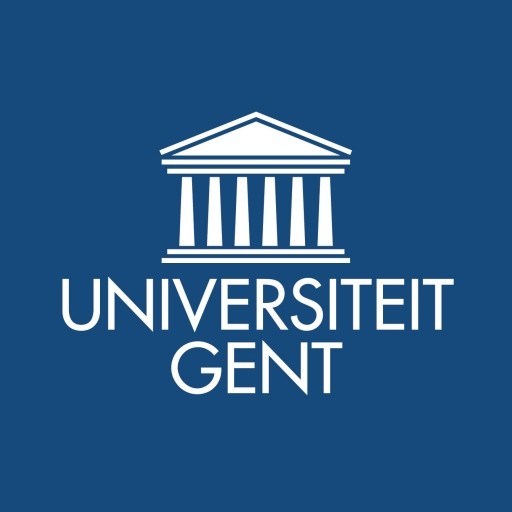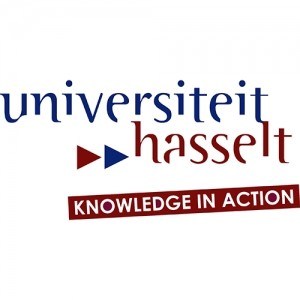Photos of university / #thefoundry_ugent
Chemical Engineering at Ghent University is a comprehensive and innovative program designed to equip students with the essential knowledge and practical skills needed to excel in the dynamic field of chemical processes and materials. This rigorous curriculum combines fundamental principles of chemistry, physics, mathematics, and engineering to prepare graduates for a wide range of careers in industry, research, and development. Throughout the program, students engage in hands-on laboratory work, projects, and internships that foster problem-solving abilities, teamwork, and technical expertise. The program emphasizes sustainable and environmentally friendly solutions, addressing current challenges in energy, materials, and clean manufacturing. Students learn about process design, thermodynamics, reaction engineering, and process control, enabling them to develop efficient and safe chemical processes. The program also offers specialization options, allowing students to focus on areas such as Pulp and Paper Technology, Biochemical Engineering, or Environmental Technology, tailoring their education to specific interests and industry needs. Ghent University’s Chemical Engineering program benefits from an international perspective, state-of-the-art laboratories, experienced faculty, and collaborations with industries and research institutes, providing students with valuable networking opportunities and real-world exposure. Graduates of this program are well-prepared to enter the workforce, pursue advanced studies, or contribute to innovative solutions for global challenges. With a strong foundation in both theoretical and practical aspects of chemical engineering, students are enabled to develop sustainable processes, optimize existing technologies, and innovate in emerging fields. The program’s commitment to academic excellence, international outlook, and sustainable development makes it an excellent choice for aspiring chemical engineers who wish to make a meaningful impact in society.
General Courses
- Unit Operations in Chemical Industry
- Chemistry of Industrial Processes
- Sustainable Chemical Production Processes
- Structure and Dynamics of Polymers
- Computer Control of Industrial Processes
- Chemical Process Design
- Kinetic Modelling and Simulation
- Computational Fluid Dynamics in Chemical Technology
- Thermal Installations
- Chemical Reactors: Fundamentals and Applications
- Polymer Reaction Engineering
- Safety and Environment
- Industrial Project
Elective Courses
- Operations Research Models and Methods
- Manufacturing Planning and Control
- Project Management
- Financial and Cost Price Reporting in Companies
- Chemistry of Nanostructures
- Chemical Modification of Renewable Resources
- Electrochemistry
- Advanced Instrumental Techniques for Chemical Analysis
- Advanced Polymer Chemistry
- Advanced X-ray Spectroscopic Techniques for Chemical Analysis
- Environmental Chemistry: Anorganic Polluents
- Environmental Chemistry: Organic Polluents
- Solid State Chemistry
- Bioprocess Control
- Experimental Design
- Linear Systems
- Modeling and Control of Waste Water Treatment Plants
- Modelling and Simulation of Dynamical Systems
- Molecular Modelling of Industrial Processes [nl]
- Analysis of High Dimensional Data
- Fluid Mechanics
- Mathematical Methods in Chemical Technology [nl]
- Technical Thermodynamics
- Combinatorial Materials Research
- Polymer Processing
- Mass Spectrometry & Isotopic Analysis
- Micro-analysis and Structure Determination in Materials Science
- Nanoporous Materials
- Surface Analysis
- Physical Materials Science
- Rational Use of Materials
- Superconducting Materials
- Chemical and Physical Textile Technology
- Clean Technology
- Sustainable Energy and Rational Use of Energy [nl]
- Ecotechnology
- Environmental Constructions
- Environmental Technology: Soil and Solid Waste [nl]
- Environmental Technology: Air [nl]
- Process Engineering 2 [nl]
- Technology of Vegetable Products
- Thermochemical conversion of biomass [nl]
- Metal Extraction and Recycling
Requirements
- The course is open to students with at least a bachelor's degree
- Reference letters
- A TOEFL-TEST with a minimum score of 90 (internet-based). Test participants should specify the "institution code" 2643 for UGent and 0749 for KULeuven, so that the score can be sent directly to the university.
- An original 'academic test report form' (TRF) from IELTS with a minimum overall band score of 7.0.
- A certificate awarded by the Ghent University Language Centre confirming proficiency in English, CEF-level B2
- Certificate Practical English 5, Upper-Intermediate Academic English or Preparing for an English test, issued by the Ghent University Language Centre.
- Cambridge-ESOL: First certificate in English (FCE)
- Enrollment fee of Ghent University for academic year 2016-2017 is 890 € for EER-students and students from OESO-DAC-list (developing countries), all other students pay an enrollment fee of 5330 €
Funding for the Master of Engineering: Chemical Engineering at Ghent University can be obtained through various sources, including government grants, scholarships, and student loans. International students may be eligible for specific scholarships such as the Ghent University Global Campus Scholarships and other Erasmus Mundus programs, which provide financial support based on academic merit and need. Belgian students and residents of the European Union can benefit from local government grants, which are designed to make higher education more accessible. These grants typically require application through the Flemish Government or local municipal services and are awarded based on criteria such as income level, academic performance, and residency status.
Additionally, Ghent University offers a range of internal scholarships for outstanding students, which often partially cover tuition fees or living expenses. Many students also finance their studies through part-time work, leveraging university career services that assist students in finding suitable employment opportunities both on and off-campus. International students are encouraged to explore external scholarship opportunities from their home countries, including government-sponsored programs, foundations, and international organizations that support students pursuing studies abroad.
Students are advised to start their financial planning early to meet application deadlines and gather necessary documentation for scholarship and grant applications. For students requiring additional funding, student loans may be available through Belgian financial institutions or international lenders, although these typically require a guarantor or proof of income. Since tuition fees at Ghent University are generally moderate compared to other European institutions, students often combine several financial resources to cover their total expenses, including tuition, accommodation, insurance, and personal living costs.
Overall, the financing studies for the Master of Engineering: Chemical Engineering program at Ghent University involve a mix of national and international funding opportunities, university-specific awards, and personal financial resources. Prospective students are encouraged to consult the university’s official scholarship pages and the Flemish Government’s student funding portals for the most accurate and updated information on available financial support programs, application guidelines, and eligibility requirements. Early application and detailed financial planning are recommended to maximize funding opportunities and ensure a smooth academic experience.
Chemical Engineering at Ghent University is a comprehensive undergraduate and postgraduate program designed to equip students with the fundamental knowledge and practical skills necessary for a career in the chemical and process industries. The program emphasizes a solid understanding of chemistry, physics, mathematics, and biology, integrated with engineering principles to develop processes that produce essential chemicals, materials, and energy sources efficiently and sustainably. Students are introduced to core topics such as thermodynamics, transport phenomena, reaction engineering, process control, and environmental impact assessment, often employing state-of-the-art laboratory equipment and simulation software to foster hands-on learning and problem-solving skills.
The curriculum is structured to combine theoretical courses with extensive laboratory and project work, enabling students to apply concepts in real-world scenarios. In addition, students have opportunities to engage in internships and collaborative research projects with industry partners, enhancing their practical experience and professional networks. The program also emphasizes sustainable development, innovation, and safety, preparing graduates to address global challenges related to resource management, pollution reduction, and alternative energy sources.
Students pursuing this program will benefit from Ghent University's strong research environment, renowned faculty members, and extensive international collaborations, which ensure access to cutting-edge knowledge and innovative practices in chemical engineering. The program ultimately aims to produce competent engineers capable of designing, optimizing, and managing chemical processes with a focus on environmental sustainability and economic efficiency. Graduates are well-positioned for careers in chemical manufacturing, energy production, pharmaceuticals, food processing, or further academic research.



